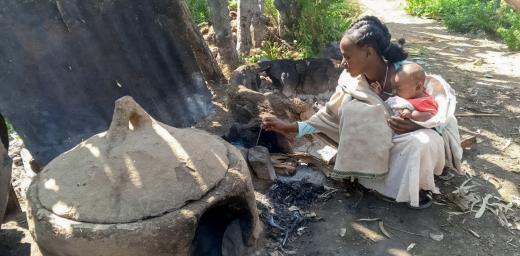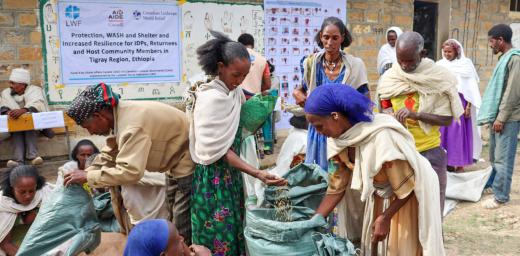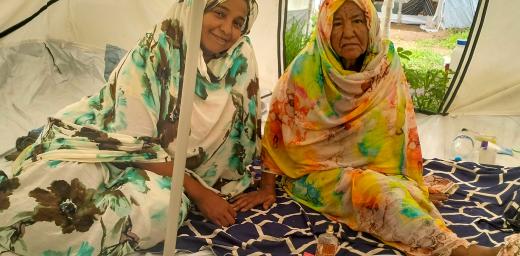Flooding and insecurity after drought
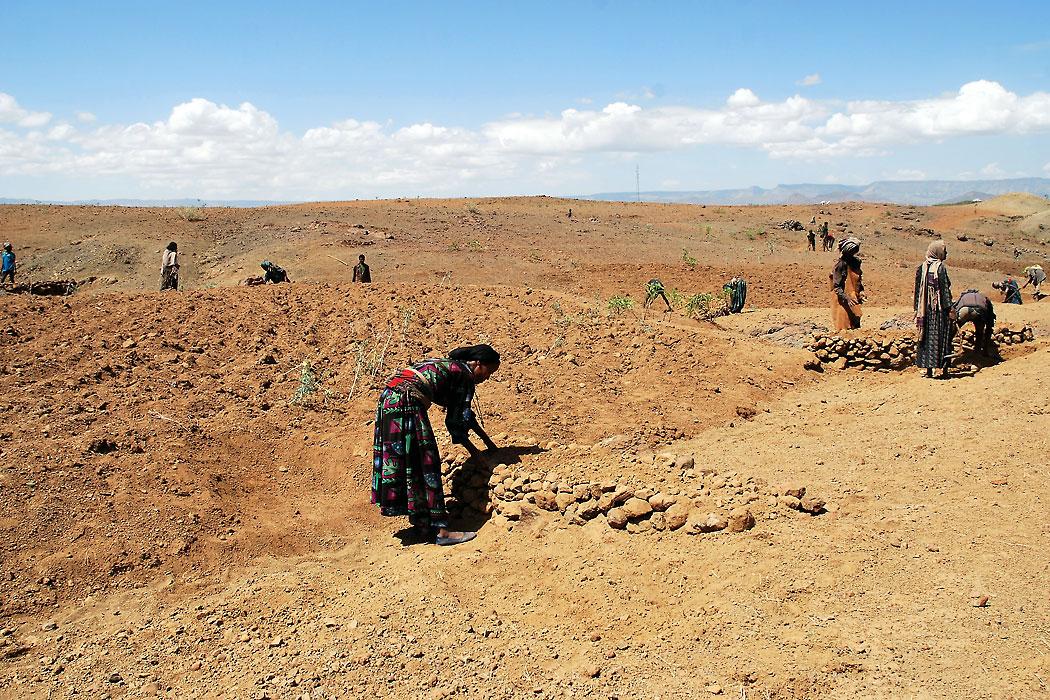
Lasta and Lalibela in North Wollo, Amhara, is one of the districts most seriously affected by drought. Photo: LWF/S. Gebreyes
More funding needed for recovery from El Nino in Ethiopia
(LWI) - After a severe drought which brought ten million people to the brink of starvation, the returning seasonal rains have started irregularly. There is little rain in some parts of the country and flooding and devastation in others. Additionally, The Lutheran World Federation (LWF) program in Ethiopia as well as other humanitarian actors report pests and fighting in some of the worst affected districts.
Ethiopia has two rainy seasons, the belg season from February to June, and the meher season from June to October. More than 90 percent of the crops in the country are harvested in the meher season. In 2015, because of El Nino, belg rains were much less than expected and meher failed altogether. Millions of people whose food supply solely depends on their farms lost their entire harvest.
Over 10 million need food aid
Ethiopia declared an emergency in early 2016 - 10.2 million people needed emergency food assistance to survive, more than 600,000 animals depended on feed distributions. Millions of children are malnourished. “The government and humanitarian actors are currently undertaking one of the biggest emergency response operations in the country,” says Sophie Gebreyes, LWF Country Representative in Ethiopia.
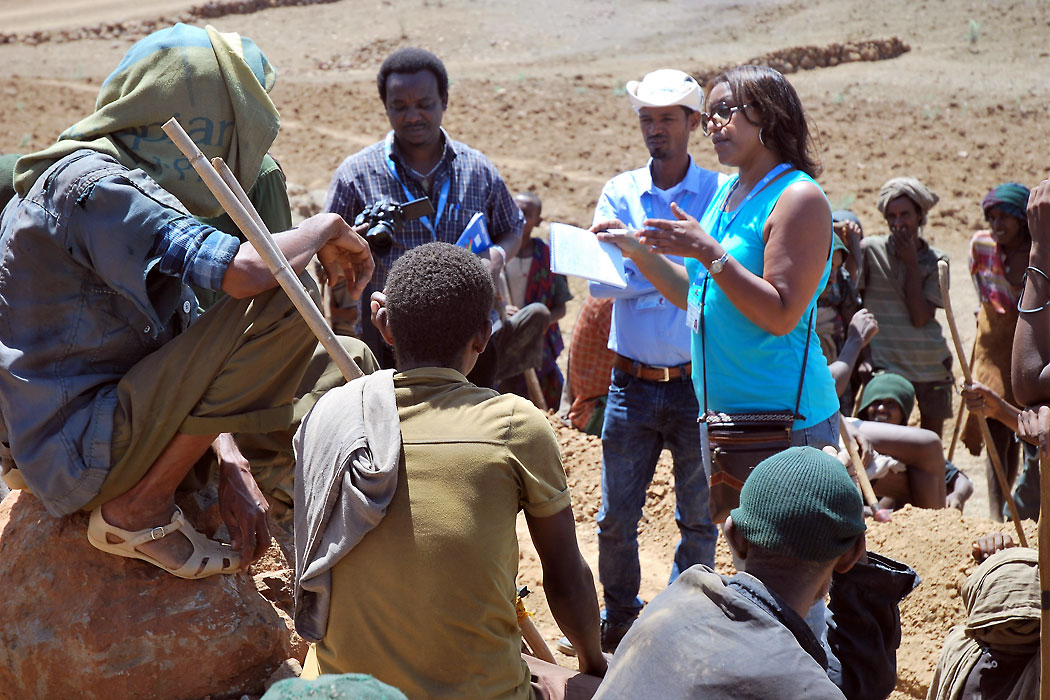
LWF Ethiopia Country Representative Sophie Gebreyes discusses the situation with farmers in Lalibela. Photo: LWF/S. Gebreyes
LWF has been assisting in two of the most affected regions, Bale Zone in Oromia region and North Wollo Zone in Amhara region. The drought is devastating especially for small-scale subsistence farmers, Gebreyes says. “Agriculture in the area is almost entirely rain-fed,” she explains. “Subsequently, the livelihoods of the communities have been severely shattered by the prolonged drought, which caused complete failure of harvests and death of livestock.”
The situation has eased a little with the belg rains 2016, which reduced the number of Ethiopians relying on direct aid by about half a million, but also caused severe flooding where the drought has hardened the soil. But after a year of failed harvests, farmers have no reserves left to make up for the new devastation of their crops. It will take a combined approach of food aid and cash for work programs to meet the immediate needs and seed and farm tool distributions and it will take new agricultural techniques and soil and water conservation to help farmers deal with the disaster.
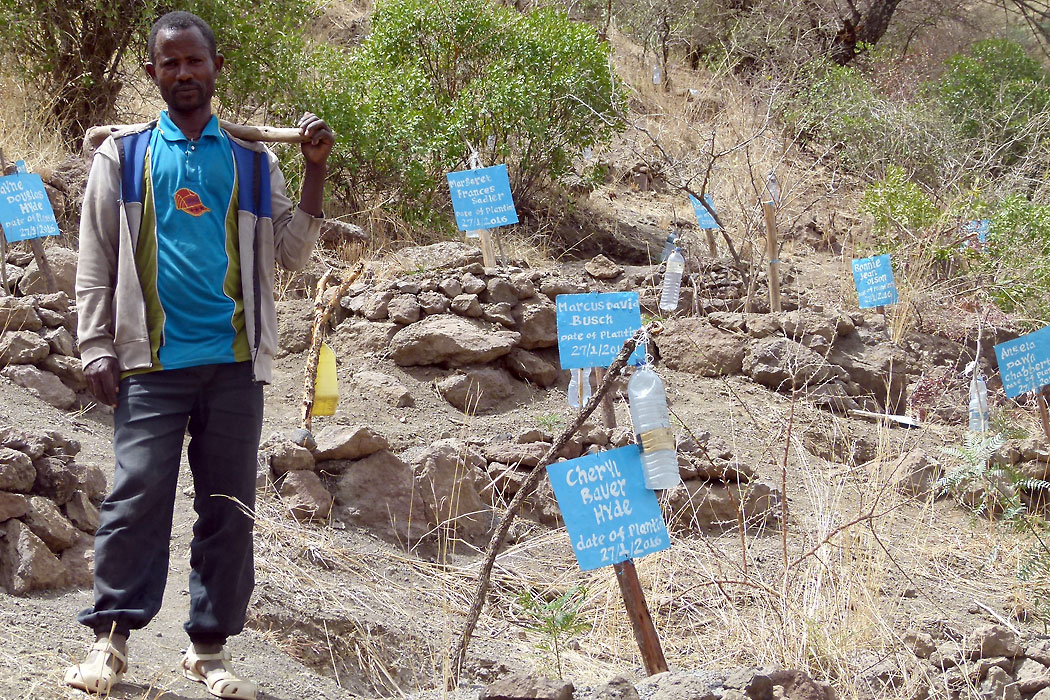
A farmer in a new plantation in Lalibela. Photo: LWF/S. Gebreyes
During the month of August, security has also become an issue. Violent clashes between the government and protesters in Oromia and Amhara have caused an uncertain number of deaths and resulted in restrictions to aid workers moving in the area. “We have been monitoring the situation very closely as we are operational in both regions,” LWF Country Representative Gebreyes says. She emphasizes however that there was no direct threat to the project work, which could continue throughout. “We have a security procedure in place to ensure staff safety and security under such circumstances.”
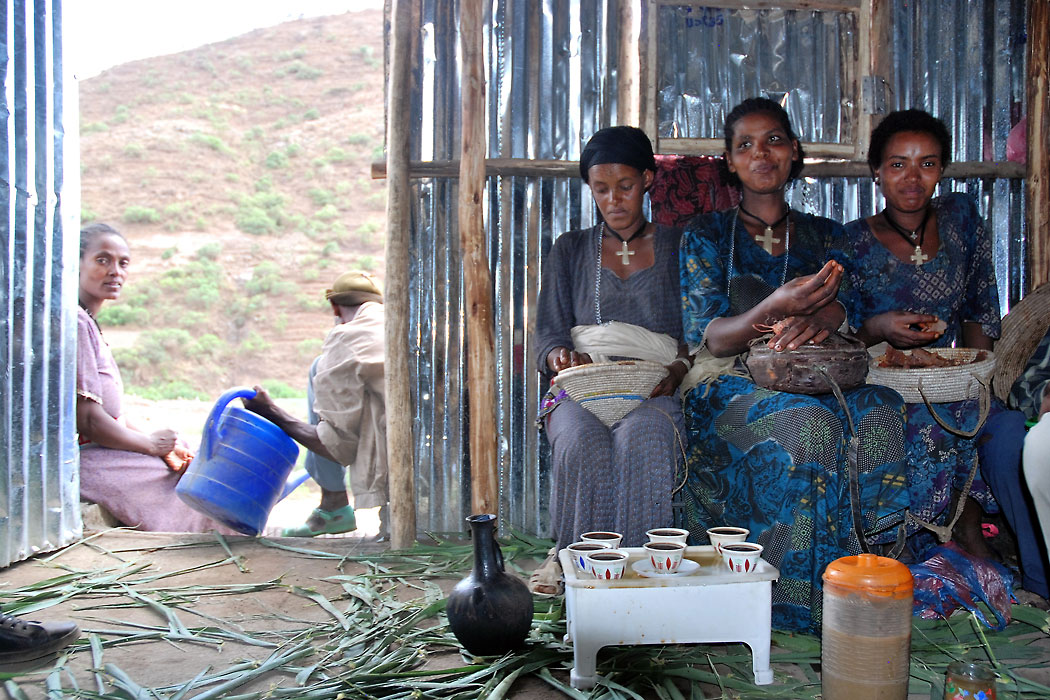
Women sort crops in Lalibela province. Photo: LWF/S. Gebreyes
Funding for the work with drought-affected communities remains a challenge as well. Only one-third of the amount requested in the last ACT appeal has been covered – enough to start the activities, but not to carry out all the relief work as planned. The funding appeal has been extended. LWF Ethiopia urgently calls for donations to prevent more hunger and starvation.
The work of LWF Ethiopia with drought-affected communities is supported by Canadian Lutheran World Relief (CLWR), Church of Sweden, SIDA, the European Commission, Evangelical Lutheran Church of America (ELCA), Finn Church Aid (FCA) and the International Rescue Committee.


